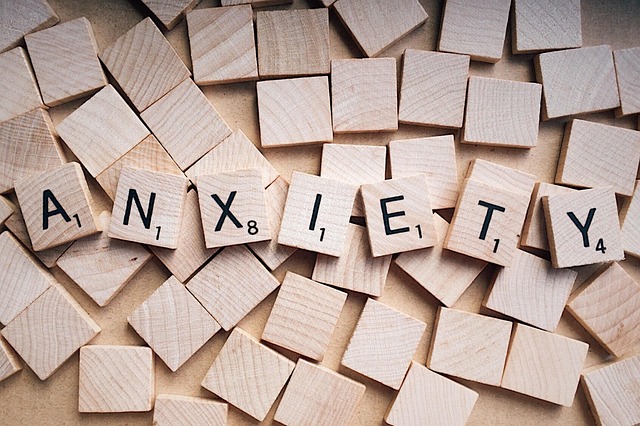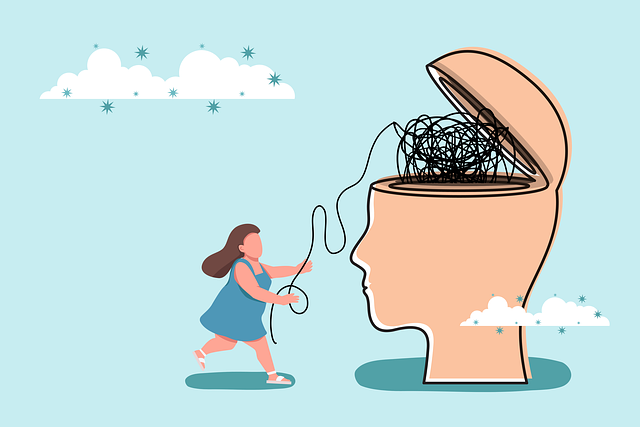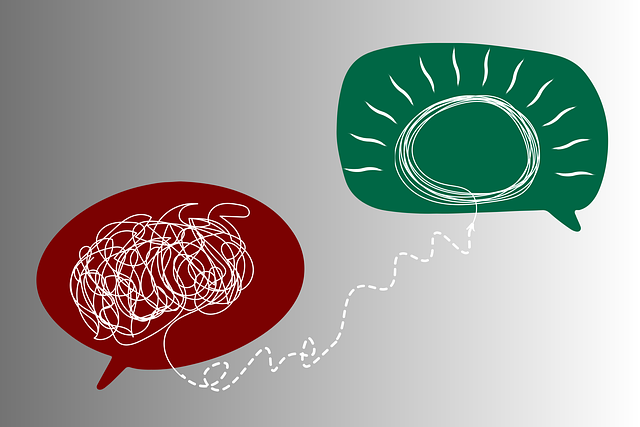The media's portrayal of mental health, particularly PTSD, significantly impacts societal perceptions and individual responses. Accurate and compassionate representations reduce stigma and encourage support-seeking, while negative stereotypes hinder understanding. In Longmont, Colorado, an innovative holistic approach to treating PTSD through diverse therapies, support groups, and digital tools is reshaping global mental health care. Media should prioritize authentic, empathetic portrayals by collaborating with mental health professionals and individuals with personal experience, normalizing conversations around mental wellness and promoting effective anxiety relief methods. Community engagement, education, and collaborative efforts enhance representation and improve overall mental health within communities like Longmont.
In today’s media landscape, the representation of mental illness plays a pivotal role in shaping public perception. This article explores how accurate portrayals can challenge stigmatization, using Longmont Post-Traumatic Stress Disorder (PTSD) therapy as a case study to demonstrate effective strategies. We delve into the current state of mental illness depiction in popular media and present solutions for enhancing empathy through empathetic and authentic representations. Community engagement and education are also highlighted as driving forces for positive change.
- Understanding the Impact of Media Portrayal on Mental Health Perception
- Longmont Post-Traumatic Stress Disorder (PTSD) Therapy: A Case Study
- The Current State of Mental Illness Representation in Popular Media
- Strategies to Enhance Accurate and Empathetic Depictions in Media
- Community Engagement and Education: Driving Positive Change
Understanding the Impact of Media Portrayal on Mental Health Perception

The media plays a powerful role in shaping societal perceptions about mental health. Accurate and compassionate representation of mental illnesses in films, television shows, and news can significantly impact how individuals understand and respond to these conditions. Positive portrayals encourage empathy, reduce stigma, and may even motivate those struggling to seek Longmont Post-Traumatic Stress Disorder Therapy or other forms of support. Conversely, negative stereotypes and misconceptions can perpetuate shame and hinder people from openly discussing their struggles.
Media has the potential to normalize conversations around mental wellness, promoting understanding and fostering environments where individuals feel comfortable seeking Anxiety Relief, participating in Social Skills Training, or maintaining Mental Wellness Journaling Exercises. By presenting diverse narratives that reflect the reality of mental illness experiences, media can contribute to a more informed and supportive society, ultimately benefiting those seeking treatment and recovery.
Longmont Post-Traumatic Stress Disorder (PTSD) Therapy: A Case Study

In the context of mental illness representation in media, a compelling case study emerges from Longmont, Colorado, where innovative PTSD therapy programs are reshaping treatment approaches. This small city’s focus on addressing Post-Traumatic Stress Disorder (PTSD) through holistic and evidence-based practices serves as a model for communities worldwide grappling with mental health crises. By integrating various therapies, community support groups, and digital tools, Longmont is not just treating PTSD but also fostering resilience and recovery.
The success of these initiatives can be attributed to a collaborative effort between healthcare providers, local authorities, and community members. This Mental Health Policy Analysis and Advocacy-driven approach ensures that burnout prevention strategies for healthcare providers are prioritized, allowing them to offer sustained support without succumbing to stress. Furthermore, by promoting anxiety relief techniques alongside traditional therapy, Longmont’s program demonstrates a comprehensive strategy that caters to the multifaceted nature of PTSD, offering hope and improved quality of life for those affected.
The Current State of Mental Illness Representation in Popular Media

The current state of mental illness representation in popular media often falls short, perpetuating stereotypes and misconceptions. While there has been some progress, many portrayals still rely on dramatic licensing, reducing complex conditions to simplistic narratives. For instance, the frequent use of extreme visuals and sensationalized storylines to depict Post-Traumatic Stress Disorder (PTSD) can oversimplify the lived experiences of individuals seeking Longmont PTSD therapy. This trend not only misinforms but also contributes to the stigmatization of those struggling with mental health issues.
The media’s role in shaping public perception is significant, making accurate and nuanced representations crucial. By integrating self-awareness exercises and emotional healing processes into storytelling, media platforms can foster a deeper understanding of mental illness. This shift would not only promote empathy but also encourage viewers to seek appropriate anxiety relief methods if needed. Such positive changes can significantly impact the way society approaches and supports individuals dealing with mental health challenges.
Strategies to Enhance Accurate and Empathetic Depictions in Media

Media has a significant impact on shaping societal perceptions of mental health. To challenge stigmatization and promote understanding, media outlets should adopt strategies that enhance accurate and empathetic depictions of mental illness. This includes hiring writers and consultants with personal experiences or expertise in mental health to ensure authenticity and avoid stereotypes. Sensitivity towards the nuances of various disorders, such as Post-Traumatic Stress Disorder (PTSD), is crucial. Portraying characters with depth and complexity, rather than simplistic tropes, can help viewers connect and empathize.
Additionally, media organizations can collaborate with mental health professionals and advocacy groups to ensure the responsible representation of conditions like PTSD, offering a platform for educational content and raising awareness about available resources, such as Longmont Post-Traumatic Stress Disorder Therapy. Incorporating scenes that showcase stress management workshops or promoting positive thinking and stress reduction methods can also contribute to a more holistic portrayal of mental well-being, aligning with the mission of organizations dedicated to these practices.
Community Engagement and Education: Driving Positive Change

Community engagement and education are powerful tools to drive positive change in how mental illness is represented in media. By fostering open dialogues, breaking down stereotypes, and promoting understanding, communities can create a more inclusive and supportive environment for individuals struggling with conditions like Post-Traumatic Stress Disorder (PTSD). Longmont Post-Traumatic Stress Disorder Therapy initiatives often begin with self-care routine development and self-awareness exercises, empowering people to take charge of their mental health. These foundational steps can lead to the production of a Mental Wellness Podcast Series, where diverse voices share their experiences, offer practical advice, and challenge societal norms. Through such collaborative efforts, communities not only improve representation but also enhance overall mental wellness.
The representation of mental illness in media has a profound impact on public perception and understanding. As demonstrated by the case study on Longmont Post-Traumatic Stress Disorder (PTSD) therapy, accurate and empathetic media portrayals can challenge stigma and promote support for those struggling with mental health issues. While there is progress, further efforts are needed to ensure diverse and realistic representations. By implementing strategies such as community engagement and education, media organizations can play a crucial role in fostering positive change and improving access to mental health resources. Through collaborative efforts, we can create a more inclusive and supportive society for individuals facing mental illness challenges.














